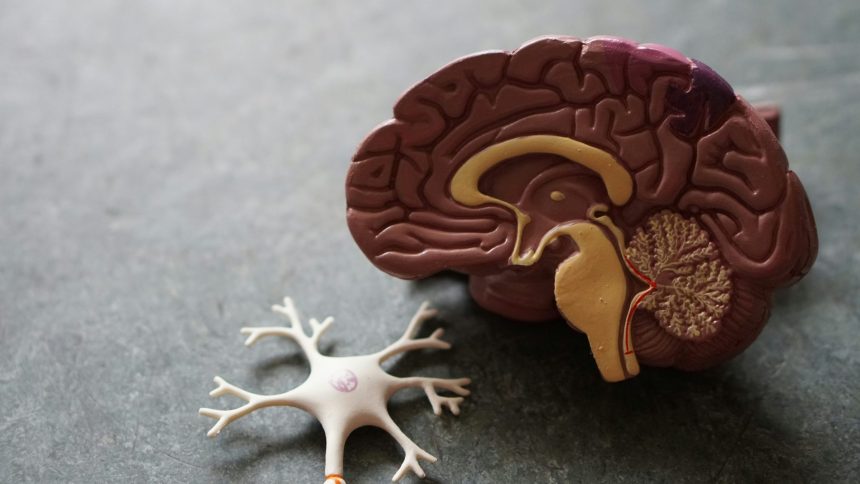In recent years, there has been a lot of speculation and misinformation surrounding the cognitive health of President Joe Biden. Some critics and opponents have raised concerns about his memory and ability to make sound decisions. In this article, we will delve into the topic of Joe Biden’s cognitive health, debunking the myths and shedding light on the facts. We will consult the opinions of neurologists and experts in the field to gain a better understanding of the cognitive changes associated with aging and how they relate to President Biden.
The Controversy and Misconceptions
Examining the Special Counsel Report
A report released by special counsel Robert Hur described President Joe Biden as an “elderly man with a poor memory.” This report immediately sparked significant misperceptions about the cognitive changes associated with aging. One notable aspect of the report was Biden’s struggle to recall specific time frames and events. However, it is crucial to understand that forgetting certain details or struggling with memory does not necessarily indicate a cognitive decline or affect decision-making and judgment.
Mixing Up Names and Recent Events
Critics have also pointed out instances where President Biden mixed up the names of foreign leaders, further fueling concerns about his cognitive health. However, neurologists emphasize that blanking on names, especially under stress, is a common occurrence in individuals of all ages. Forgetting names or having difficulty remembering recent events does not automatically indicate a cognitive impairment.
Normal Memory Changes with Aging
To better comprehend these concerns, it is essential to distinguish between normal memory changes associated with aging and signs of cognitive decline. Neurologists explain that as individuals grow older, they may experience more difficulty retaining and retrieving new information. However, mental processes such as decision-making and judgment can actually improve with age. The accumulation of life experiences and different situations can contribute to a heightened sense of wisdom.
Expert Opinions on Memory Changes
Dr. Paul Newhouse’s Insights
Dr. Paul Newhouse, a clinical core leader for the Vanderbilt Alzheimer’s Disease Research Center, acknowledges that forgetting names and struggling with memory is a universal complaint among older individuals. He shares a personal example, stating that he couldn’t necessarily recall the exact year his mother passed away because it was many years ago. Dr. Newhouse emphasizes that this type of forgetfulness does not predict the development of memory disorders.
Dr. Dennis Selkoe’s Perspective
Dr. Dennis Selkoe, co-director of the Ann Romney Center for Neurologic Diseases, agrees that forgetting names is not an adequate basis for concluding whether an individual has a progressive memory disorder. Stress and a lack of sleep can significantly impact memory, irrespective of age. Dr. Selkoe emphasizes that naming proper nouns alone does not provide sufficient insight into an individual’s overall cognitive health.
Differentiating Normal Aging from Progressive Disorders
Episodic Memory and Progressive Disorders
While forgetting names or struggling with certain details is considered within the realm of normal aging, issues with episodic memory can be indicative of a progressive disorder. Episodic memory refers to memory for events in time, such as remembering if one went shopping or recalling specific incidents. Neurologists become more concerned when individuals are unaware of their forgetfulness or fail to recognize that they have forgotten something.
Distinguishing Short-term and Long-term Memories
Dr. Newhouse highlights that neurologists tend to worry less about a patient’s ability to remember remote memories from many years ago. Instead, they focus on the individual’s capacity to recall recent events. Dementia primarily affects the part of the brain responsible for short-term memories. Therefore, an inability to remember recent occurrences may be a cause for concern.
Cognitive Benefits of Aging

Emotional Intelligence and Decision-making
Amidst the discussions surrounding cognitive decline, it is essential to acknowledge the cognitive benefits that come with aging. Dr. Selkoe points out that greater longevity can bring about a type of emotional intelligence and an enhanced ability to handle various life experiences. With age, individuals often develop a more careful and rational approach to decision-making.
Cognitive Health Assessments in Public Figures
Given the critical role of leaders in making decisions that affect millions, the cognitive health of public figures like President Joe Biden becomes a topic of public interest. This section delves into the importance of cognitive health assessments for public figures, the challenges in assessing cognitive health from a distance, and how these assessments can be approached responsibly.
Importance of Cognitive Assessments
Cognitive assessments for public figures, especially those in significant leadership roles, are crucial for several reasons:
- Decision-Making Capabilities: Ensuring that a leader has the cognitive capacity to make informed, rational decisions is vital for national and international policy-making.
- Public Confidence: Public knowledge of a leader’s good cognitive health can bolster confidence in their ability to govern effectively.
- Transparency and Accountability: Regular cognitive assessments can promote transparency and accountability, showing that leaders are physically and mentally fit to serve.
Challenges in Remote Assessments
Assessing the cognitive health of public figures without direct examination presents significant challenges:
- Accuracy: Remote assessments based on public appearances and speeches can lead to inaccurate conclusions, as they may not capture the full spectrum of an individual’s cognitive abilities.
- Contextual Factors: Factors such as stress, fatigue, and the nature of public speaking can affect performance and may be misinterpreted as signs of cognitive decline.
- Privacy and Ethics: There’s a delicate balance between the public’s right to know and the individual’s right to privacy. Ethical considerations must guide any discussion about a public figure’s cognitive health.
Responsible Approaches to Cognitive Health Assessments
To navigate these challenges, certain principles should guide the discussion about the cognitive health of public figures:
- Professional Evaluation: Ideally, cognitive assessments should be conducted by medical professionals who can provide an objective analysis of the individual’s cognitive state.
- Comprehensive Assessment: Cognitive health should be assessed through a comprehensive evaluation that includes a range of cognitive functions, not just memory or speech.
- Transparency: Public figures, especially those in critical leadership positions, might consider sharing the results of their cognitive assessments to maintain public trust.
- Safeguarding Privacy: While transparency is important, it’s equally crucial to respect privacy and ensure that any disclosure of medical information is voluntary and handled with care.
The Role of Age in Leadership

The discussion about President Joe Biden’s cognitive health often intersects with broader conversations about the role of age in leadership. This section explores how age can influence leadership abilities, the advantages of experience, and the importance of supporting structures in governance.
Influence of Age on Leadership
Age brings about both challenges and advantages in leadership roles:
- Experience and Wisdom: With age comes a wealth of experience and a deeper understanding of complex issues, which can enhance decision-making and strategic thinking.
- Adaptability: Older leaders may face challenges in adapting to rapid technological changes or shifting cultural landscapes. However, a diverse advisory team can mitigate these challenges.
- Physical and Cognitive Stamina: While concerns about physical and cognitive stamina arise, individual health varies widely among older adults. Regular health assessments can help address these concerns.
Supporting Structures in Governance
Effective governance in the face of aging leadership relies on strong supporting structures:
- Vice Presidents and Cabinet Members: A capable and active vice president and cabinet can provide additional support and expertise, ensuring that governance is a collective effort.
- Advisory Teams: Diverse and skilled advisory teams can supplement a leader’s experience with fresh perspectives and specialized knowledge.
- Succession Planning: Clear succession plans can reassure the public about the continuity of governance in the event of health issues or cognitive decline.
The discussion surrounding President Joe Biden’s cognitive health highlights the need for a balanced and informed approach to evaluating the cognitive capabilities of public figures. While it’s important to ensure that leaders are fit to serve, assessments must be conducted responsibly, with an appreciation for the nuances of aging and cognitive health. Ultimately, effective leadership relies not just on the cognitive health of an individual but on the strength of the team and structures that support them. As society continues to grapple with these issues, it becomes clear that age alone should not be a disqualifier for leadership, provided that the right support systems are in place.
Public Perception and Media Influence on Cognitive Health Discussions

The dialogue around the cognitive health of leaders like President Joe Biden is not only shaped by medical assessments and expert opinions but also significantly influenced by public perception and media narratives. This section explores the impact of media portrayal and public discourse on the understanding of cognitive health in leadership, addressing the challenges of misinformation and the role of responsible journalism.
Media Portrayal and Its Impact
The way media outlets report on the cognitive health of public figures can profoundly affect public perception. Sensationalized reporting or selective coverage can lead to skewed perceptions of a leader’s cognitive abilities.
- Selective Coverage: Focusing on isolated incidents, such as verbal gaffes, without context, can create a misleading picture of a leader’s overall cognitive health.
- Sensationalism: Sensational headlines or stories that emphasize speculation over facts can contribute to unwarranted concerns about a leader’s fitness to serve.
Challenges of Misinformation
In the age of social media and 24/7 news cycles, misinformation can spread rapidly, complicating the public’s understanding of a leader’s cognitive health.
- Echo Chambers: Social media platforms can act as echo chambers, where users are exposed primarily to viewpoints that reinforce their pre-existing beliefs, including unfounded speculations about cognitive decline.
- Distinguishing Fact from Opinion: The abundance of information sources makes it challenging for the public to distinguish between factual reporting and opinion pieces, leading to confusion and misinformation.
The Role of Responsible Journalism
Responsible journalism plays a crucial role in ensuring that discussions about cognitive health are informed, balanced, and respectful.
- Fact-based Reporting: Media outlets have a responsibility to base their reporting on facts and expert analyses, rather than speculation or partisan viewpoints.
- Providing Context: Journalists should provide context for their reports, including the normal cognitive changes associated with aging and the difference between these changes and significant cognitive impairment.
- Ethical Considerations: The media should navigate the fine line between the public’s right to know and the individual’s right to privacy, treating subjects with dignity and respect.
Fostering Informed Public Discourse
Creating an informed public discourse around cognitive health and leadership requires efforts from both media professionals and the audience.
- Media Literacy: Encouraging media literacy among the public can help individuals critically evaluate news sources and identify credible information.
- Public Engagement: Public forums, debates, and discussions that involve experts in neurology and gerontology can help demystify cognitive health issues and dispel myths.
The conversation surrounding the cognitive health of public figures such as President Joe Biden highlights the complex interplay between medical science, media portrayal, and public perception. While it’s vital to ensure leaders are capable of fulfilling their duties, the discourse must be rooted in factual information and approached with sensitivity and respect for privacy. Media outlets play a pivotal role in shaping this dialogue and must strive for responsible reporting. As consumers of media, the public also bears the responsibility of seeking out reliable sources and engaging in informed discussions. By fostering a balanced and educated discourse, society can better navigate the challenges of leadership in the context of aging and cognitive health.
Promoting Cognitive Health Across Lifespans
In today’s fast-paced world, maintaining cognitive health is a priority for people of all ages. Cognitive health encompasses brain functions including memory, thinking skills, and the ability to learn and maintain focus. As we navigate through different stages of life, adopting practices that promote brain health can significantly enhance our quality of life and cognitive performance.
Understanding Cognitive Health
Cognitive health is influenced by various factors, including genetics, lifestyle choices, and environmental exposures. It involves more than just memory; it’s about how we process information, make decisions, and solve problems. Maintaining cognitive health is essential for carrying out daily tasks, interacting socially, and achieving personal and professional goals.
Lifestyle Choices for Enhancing Brain Health
Research suggests that certain lifestyle choices can have a profound impact on maintaining and improving cognitive function. Here are some key practices to consider:
- Regular Physical Exercise: Exercise not only benefits the body but also the brain. Activities like walking, swimming, or yoga increase blood flow to the brain, which can help improve cognitive functions and reduce the risk of cognitive decline.
- Healthy Diet: Eating a balanced diet rich in fruits, vegetables, lean proteins, and whole grains can support brain health. Foods high in antioxidants, omega-3 fatty acids, and vitamins have been linked to better cognitive performance and a lower risk of dementia.
- Mental Stimulation: Engaging in activities that challenge the brain, such as puzzles, reading, learning a new skill, or even playing musical instruments, can enhance cognitive resilience and stimulate neurogenesis, the creation of new brain cells.
- Social Engagement: Regular interaction with friends, family, and community members can prevent feelings of isolation and support cognitive health. Social activities stimulate the brain and can contribute to a more positive outlook on life.
- Adequate Sleep: Quality sleep plays a critical role in brain health. During sleep, the brain removes toxins that accumulate during the day, consolidates memories, and repairs cells. Aim for 7-9 hours of sleep per night to support cognitive function.
- Stress Management: Chronic stress can negatively impact brain health. Techniques such as mindfulness, meditation, and deep-breathing exercises can help manage stress levels, promoting a healthier brain environment.
The Role of Preventive Healthcare
Regular check-ups and preventive healthcare play a crucial role in maintaining cognitive health. Healthcare professionals can provide guidance on strategies to minimize risk factors for cognitive decline, such as controlling blood pressure, managing diabetes, and avoiding tobacco and excessive alcohol use. Early detection and management of health conditions can significantly impact long-term cognitive health.
Cognitive health is a vital aspect of overall well-being that should not be overlooked. By making informed lifestyle choices and engaging in activities that stimulate the mind and body, individuals can promote their cognitive health across all stages of life. Embracing a proactive approach to brain health can lead to a more fulfilling, productive, and vibrant life.
Embracing a Future of Enhanced Cognitive Well-being
As we look towards the future, the importance of cognitive health continues to gain recognition in both the medical community and the public sphere. Innovations in technology, advances in medical research, and a growing awareness of mental health’s role in overall well-being are paving the way for a future where cognitive health is prioritized and nurtured from a young age. This concluding section explores the hopeful outlook for cognitive health advancements and the collective effort needed to embrace and enhance cognitive well-being for all.
The Promise of Medical Research and Technology
The future holds great promise for breakthroughs in understanding and enhancing cognitive health. Ongoing research in neurology and psychology offers deeper insights into how our brains function and how we can prevent cognitive decline. From the development of neuroprotective medications to the use of artificial intelligence in diagnosing early signs of cognitive disorders, the potential for medical advancements to improve cognitive health is immense.
Moreover, technology plays a crucial role in this landscape. Mobile apps designed to improve memory, attention, and problem-solving skills are becoming increasingly sophisticated, offering personalized brain training based on the latest cognitive science. Wearable devices that monitor brain activity and provide feedback for stress management and mental focus are making it easier for individuals to take control of their cognitive health.
The Role of Education and Public Awareness
Education and public awareness are key to promoting cognitive health across lifespans. Schools are beginning to incorporate lessons on brain health, mindfulness, and emotional intelligence into their curricula, equipping the next generation with the knowledge and skills to maintain cognitive well-being. Public health campaigns are also playing a vital role in destigmatizing mental health issues and encouraging open conversations about cognitive health challenges and strategies for improvement.
A Collective Effort for a Cognitively Healthy Society
Achieving a future of enhanced cognitive well-being requires a collective effort from individuals, healthcare professionals, policymakers, and communities. It involves:
- Advocating for Mental Health Resources: Ensuring that everyone has access to mental health services and support for cognitive health issues.
- Promoting Healthy Lifestyles: Encouraging physical activity, balanced nutrition, mental stimulation, and social engagement as pillars of cognitive health.
- Supporting Research and Innovation: Investing in scientific research and technological innovation that aim to understand and improve cognitive function.
- Building Supportive Communities: Creating environments that support cognitive health through education, accessible healthcare, and policies that foster well-being.
The journey towards enhanced cognitive health is an ongoing process, filled with challenges, discoveries, and opportunities. By embracing the advances in medical research, leveraging technology, and fostering an environment of education and support, society can move towards a future where cognitive well-being is not just a possibility but a priority. As we continue to learn and adapt, the vision of a world where every individual has the resources and knowledge to nurture their cognitive health becomes increasingly attainable. Let’s commit to this vision, working together to ensure that cognitive health is recognized, valued, and preserved for generations to come.
Conclusion
In conclusion, the concerns and speculation surrounding Joe Biden’s cognitive health are often based on misconceptions and misinformation. Neurologists stress that forgetting names or struggling with memory is a common occurrence in individuals of all ages, including older adults. It is important to differentiate between normal memory changes associated with aging and signs of cognitive decline. As President Biden continues to fulfill his duties, it is crucial to focus on his overall ability to make sound decisions rather than cherry-picking isolated incidents.
Featured Image Credit: Photo by Robina Weermeijer; Unsplash – Thank you!







